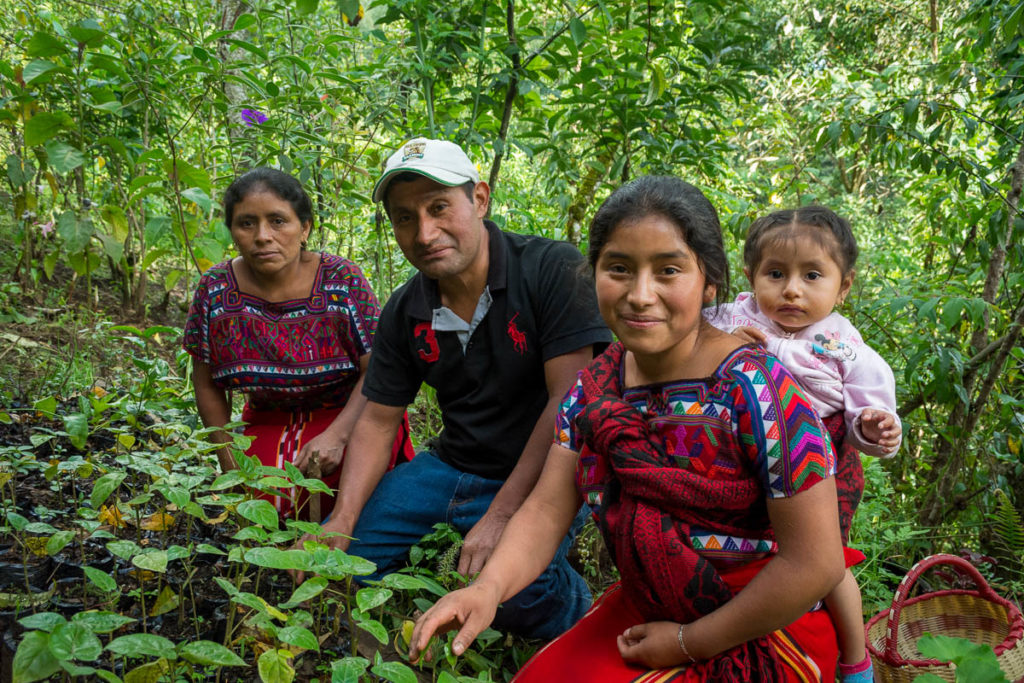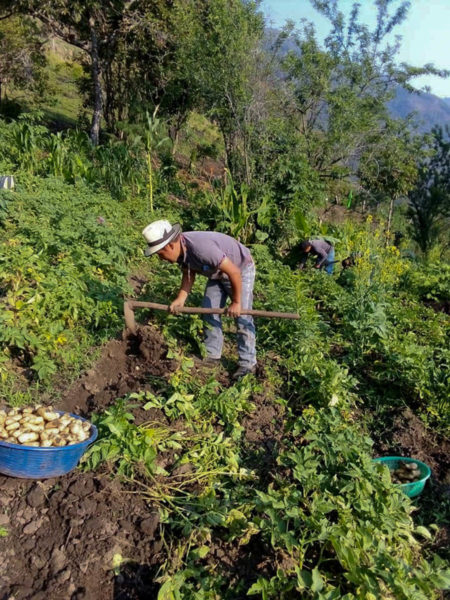
Lasting Solutions To Hunger Critical During COVID-19
 In the Western Highlands of Guatemala, where Cristobal farms, most markets have closed, travel is restricted, and opportunities for day laborers are almost non-existent due to COVID-19. For some in the community, it will mean skipped meals and hunger. Already more than half of the children in this region suffer from stunting and chronic malnutrition. For Cristobal, it means he has to find creative ways to market his abundant harvest of potatoes, herbs, and avocados. “100% organic, fresh from the field, contact me through Facebook or Whatsapp,” he posts on social media along with photos of the crops he has for sale. While Cristobal is certainly facing challenges due to COVID-19, he is in a much better situation than many. He has benefited from the sustainable farming skills and resiliency he has gained in recent years through his participation with Growing Hope Globally.
In the Western Highlands of Guatemala, where Cristobal farms, most markets have closed, travel is restricted, and opportunities for day laborers are almost non-existent due to COVID-19. For some in the community, it will mean skipped meals and hunger. Already more than half of the children in this region suffer from stunting and chronic malnutrition. For Cristobal, it means he has to find creative ways to market his abundant harvest of potatoes, herbs, and avocados. “100% organic, fresh from the field, contact me through Facebook or Whatsapp,” he posts on social media along with photos of the crops he has for sale. While Cristobal is certainly facing challenges due to COVID-19, he is in a much better situation than many. He has benefited from the sustainable farming skills and resiliency he has gained in recent years through his participation with Growing Hope Globally.
The importance of resiliency is becoming more apparent than ever during the current crisis. A United Nations report recently estimated that more than 500 million people will be pushed into poverty due to the pandemic, reversing the progress made over the last 30 years. We join their calls for a global response, but beyond social safety nets, we believe that it is critical that investments continue to be made in sustainable development. This is especially true in rural areas where the majority of the poor make their income through farming. Growing Hope Globally works to support sustainable food security programs around the world that help families produce enough food to feed their families and become more resilient.
Right now we are hearing from partners that there is grave concern about the long term impact the coronavirus will have on the rural communities we serve. Thankfully, while they continue to be in a precarious situation, the programs we support are making a difference. One partner said, “Some of the families we work with remind us of the parable of the wise man, whose house was built upon a rock. Their patio gardens and laying hens are their solid foundation”.
While each program is different, most of the programs we fund focus on helping families grow more and better crops. They are primarily for their family’s consumption, with any surplus being sold at local markets or shared with neighbors. This is different from a market-oriented approach, where crops are not grown for their nutritional value, but for the cash they bring when sold at markets in distant capital cities, or to international buyers. Higher prices and better incomes are attractive, but leave farmers vulnerable to market shocks and disruptions, such as the ones happening now.
This does not mean that the families we support won’t be affected by COVID-19 or by other disasters like the one looming in Eastern Africa due to locusts. However, we have seen that in general they will be better off than their neighbors and better able to recover once the crisis has passed.
Douglas, a participant in a program we support in Nicaragua, shared that “It is good to receive training because then it’s mine and no one can take it away from me; I’m not dependent on someone else”.
As we stand together in the face of these uncertain times, we hope that others will join us in growing lasting solutions to hunger.
